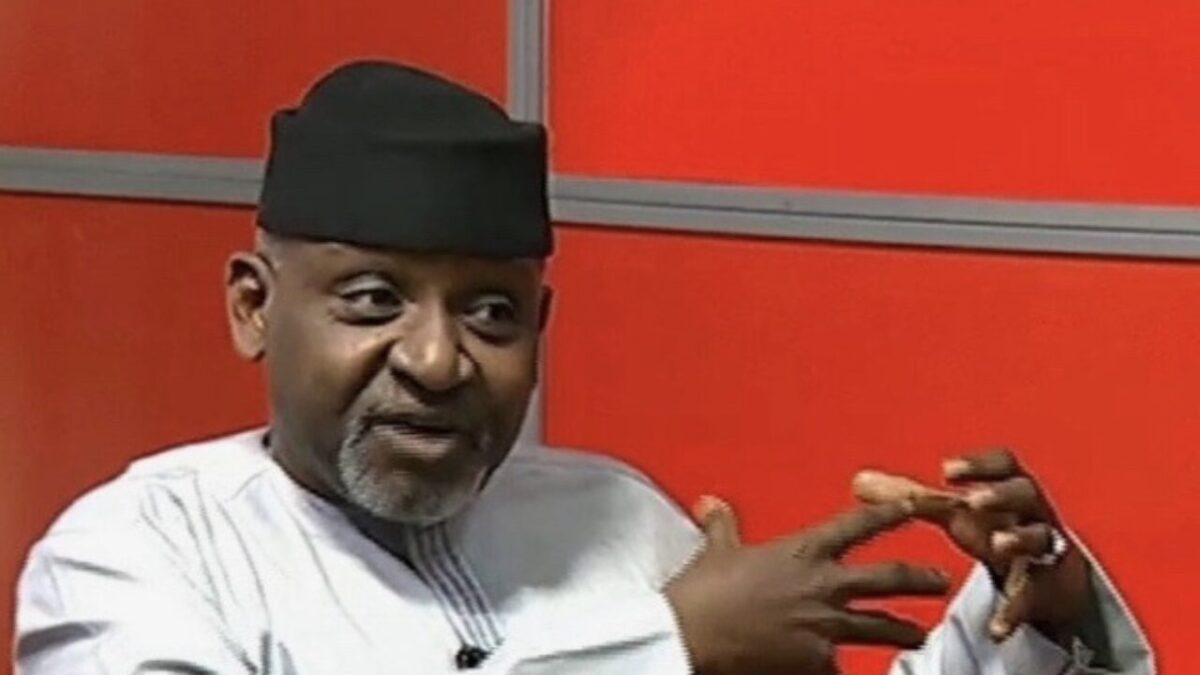
While resuming at his office at the Federal Ministry of Transportation in Abuja in July last year, the Minister of Transportation, Mr Mu’azu Sombo pledged to give his best towards achieving President Muhammadu Buhari’s Infrastructure Development Agenda in the transport sector.
And by the time he is done on May 29, 2023, Mr Sambo will have the record of the Minister of Transportation with the shortest tenure. He served for just about 10 months.
He also acknowledged this, when he resumed at his office and addressed staffers of the Ministry in Abuja. “I am here for a very short time”, he said.
No doubt, the Ministry of Transportation is big. Agencies under the Ministry include: Nigerian Institute of Transport Technology, Nigerian Railway Corporation, National Inland Waterways Authority, Maritime Academy of Nigeria, NIMASA, NPA, and Council for Regulation of Freight Forwarding in Nigeria.
There are challenges at each of the agencies; there is hardly any segment of the nation’s maritime sector that does not have of one issue or another.
Without dwelling so much on sectoral challenges, the Minister had his cup full upon his appointment.
Issues that were on the table awaiting his action included: Implementation of the Cabotage Act, and the Cabotage Vessel Finance Fund, the National Seafarers Development Programme, the NIMASA Floating Dock, Review of the Concession Agreement with Terminal Operators, a host of other issues.
This newspaper had advised at that time, that he did not need to reinvent any wheel. We had noted that, there was already a road map at the Ministry, and that there had been several engagements with stakeholders in the industry. So, there exists a road map to work with.
Of course, he had shown appreciable determination to make a difference as the Minister in charge of the nation’s transportation sector.
But, at the risk of being accused of patronizing him, we think that in actual fact the immediate past Minister; Mr Rotimi Amaechi had done enough to make things easy for his successor; Mu’azu Sambo.
Yes, Sambo made pronouncements about some critical issues in the maritime industry. For instance, he has given his support for the disbursement of the Cabotage Vessel Finance Fund (CVFF). He also expressed commitment about the National Transport Commission (NTC) Bill, which awaited the assent of President Muhammadu Buhari for many months.
Also, the Dala Inland Dry Port in Kano was awaiting commissioning before his appointment as Minister. We recall that, he called most of the things listed above ‘low hanging fruits’!
However, by May 29, a new government has taken over and the tenure of Muazu Sambo as Minister of Transportation has come to an end, unless he is reappointed by the new administration.
Stakeholders may not be generous with him, understandably because the minister failed to pluck those hanging fruits.
From our understanding as a maritime media outfit, the Minister will be judged based on three things: The Cabotage Vessel Finance Fund (CVFF), the National Transport Commission Bill, and the renewal of the concession agreement of the terminal operators.
Sadly, Mr Sambo failed to nail any of the three. Although, they were the low hanging fruits he referred to upon his appointment. Unfortunately, he could not do anything about.
In December, our hopes were raised when he announced that President Muhammadu Buhari had consented to disbursing the CVFF, but for almost six months after, the funds were not disbursed.
We are not convinced that the move by the House of Representatives to stop the disbursement was enough to truncate the exercise. The Minister had sufficient time to galvanise NIMASA to ensure that the funds were disbursed, but he did not do that.
Apart from the Primary Lending Institutions that were named, nothing concrete was achieved, and this worried us, just as it also worried many stakeholders.
It does appear as if NIMASA does not know how to go about the remaining part of the process after the PLIs were named. It also appears like there was a deadlock in the discussions with the banks, which were very critical to the realization of the disbursement of the CVFF.
The minister ought to pay more attention to the promise that he gave, which was that the CVFF would be disbursed before he left office.
On the renewal of concession agreement with terminal operators, Sambo did not see this one through. This is curious because, on his first official visit to the Nigerian Shippers Council as the Minister, he had alleged that requests for concession agreement renewals from the NPA had been submitted without verifiable data on the performance of the terminals. He consequently declared that, as the ports’ Economic Regulator, the Shippers’ Council was best qualified to audit the performance of the terminal operators.
Apparently, the decision to drag the Shippers Council into the arrangement has negatively affected the port concession renewal efforts. It is being added to his list of failures, because the agreement was not even presented for the Federal Executive Council to look into and probably ratify.
Coming after some terminal operators had already secured renewals of their concession agreements, the directive to bring in the Shippers Council actually negatively affected the process.
We had thought that, rather than pitch the two sister agencies against each other, the Ministerought to have pulled all the political strings to ensure that President Muhammadu Buhari signed the National Transport Commission Bill, before leaving office on May 29. But that was also not accomplished.
Perhaps, the NTC is what the Nigerian transportation sector needs to revolutionise, just as the National Communication Commission has done to the telecoms industry.
Mu’azu Jaji Sambo would have been remembered for good, if he had been able to get the President to assent to the NTC Bill, even if he was not able to ensure the disbursement of the CVFF.
Follow us on Facebook/ twitter















